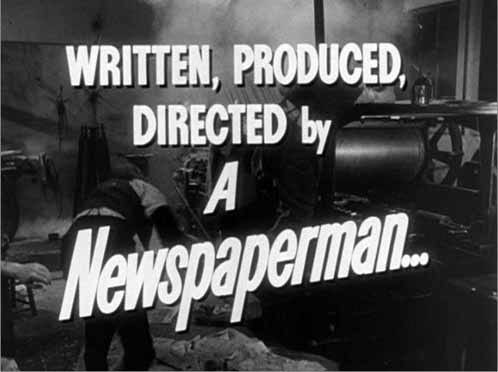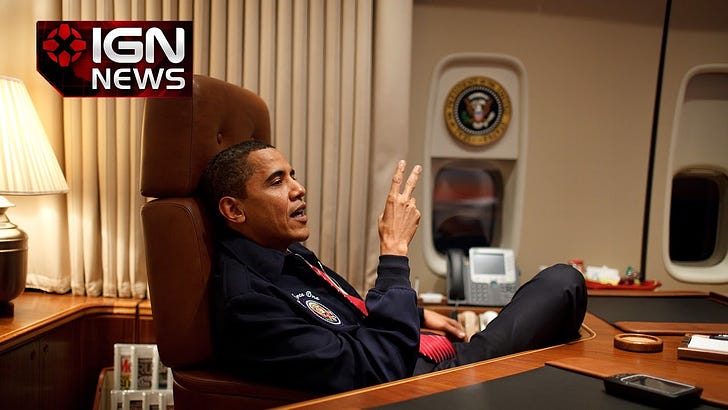In 2008, exhausted from eight years of 9/11 fear-mongering and hungry for someone vastly different and, dare I say, antagonistic towards W. Bush, I was more interested in third party politics than what the Democrats - who had failed to get us out of Iraq despite their promises - had to offer. I went Independent and voted for Ralph Nader, feeling I had more in common with him than anyone else running.
The evening when the election results ran, I instantly regretted my choice, upon hearing Nader take to Fox News, and refuse to apologize for effectively calling the newly elected President a potential “Uncle Tom.” Red flags should’ve come about for me when I watched the documentary on Nader titled An Unreasonable Man, that featured interviews with the likes of Pat Buchanan. I even made excuses well into the Obama Administration, when Nader wrote a blog post about Osama Bin Laden’s ghost, haunting President Obama from above.
While I still, to this day, agree with Nader’s policy ideas and ideals, I don’t much care for his candor and bedside manner, which have gone to the point of desperation and bitter attention-hogging.
In 2012, having just begun my career as a movie writer the year prior, I was fully enamored with the compelling Occupy movement, and its many splinter organizations. I watched amazed as celebrities, activists, and some candidates jumped on board with the call for action. Here, I switched from independent to Green, and voted for Jill Stein this time around. In the months and years after, I would regret this choice too.
Aside from her problematic views on vaccinations and associations with the Russian Government, what got me the most was when, after Trump won in 2016, she collected millions of dollars in donations to challenge the integrity of the election itself, only to turn around and just keep the money while doing nothing. Disappointing, for sure. Flat-out wrong, absolutely.
Now, in THAT election, I went back to the Democratic Party, chose Bernie Sanders in the primary, and ultimately voted for Hillary Clinton in November. My road from third party stubbornness to true blue progressivism was murky, but I eventually landed on sure-footed ground. And while I didn’t choose Obama, his message of “Change” chose me in some respects.
These days, with ”The Squad” reaching Congress, and 2020 candidates both feeling “the Bern” and being urged to “Persist” in expressing some very left-leaning policies and plans (thanks to Bernie, Elizabeth Warren, AOC, and a plethora of activists speaking truth to power), it’s most urgent to be open, honest, and assertive towards the cause of moving us all forward. Of course, we all have differing opinions on HOW to push onward and upward…

I sometimes feel an inadequacy in my film writing. Not so much in the reviews of movies themselves, but where the work stands among other acts of journalism. While others report on the corrupt misdeeds of President Trump and company, not to mention covering what’s happening in detention camps, I’m off giving my thoughts on Marvel Studios latest flick. Avengers: Endgame was indeed culturally relevant and even historic, but was critiquing it news or fluff? And, in this era of anti-journalism sentiment, am I helping or hurting?
Years ago, I struggled to answer why arts criticism was important. To me, a cinephile, this kind of writing is necessary. To average weekend moviegoers?
Was I just writing to read my own thoughts and observations virtually?
No.
This writing IS important for anyone and everyone interested, as we need the details between the lines, within the frames, and hidden in plain sight, to be exposed. We need to have the nuanced and the overt articulated for what they are and why they are. If art is a reflection of what our world is and how we see it, live in it, and interact with it, then the words we find to talk about them are an extension of that reflection. And the more conversations we have, the better our understanding and comprehension of that reflection becomes.
In other words, arts criticism is as important to journalism as political reporting and commentary. It’s all in response to and in question of the reflection of the world as it is, was, and could be.
I suppose, being a progressive and being a film critic is a righteous fit. Cinema is literally and figuratively about illusions of imagination in movement, showcasing dreams and realities involving the human experience. Progressivism is, for me, about making tomorrow great by reforming today. It’s about observing the people around you, comprehending the various experiences, and learning something from it all. It’s an ongoing effort in and opportunity for maturing and becoming a better person. It’s about empathy and honesty and courage.
Kinda cinematic, really.
And so, what is the thesis for this newsletter? How would I sum up its goals? What am I giving to my community?
Review, Then Persist will:
Review and rate movies from a progressive stance, with empathy, compassion, confidence, and passion.
Explore the forward-thinking values and ideals of a given film, or the absence of them.
Interview filmmakers, activists, and leaders about the influence of cinema on politics, vice versa, and what picture in particular represents who they are.
Cover events and festivals that challenge the static status quo by featuring and exhibiting new and different voices in filmmaking.
Is that enough? It’s what I have to offer, so I’ll do my best and then some.
Join me, if you please.
Sincerely, Bill Arceneaux




